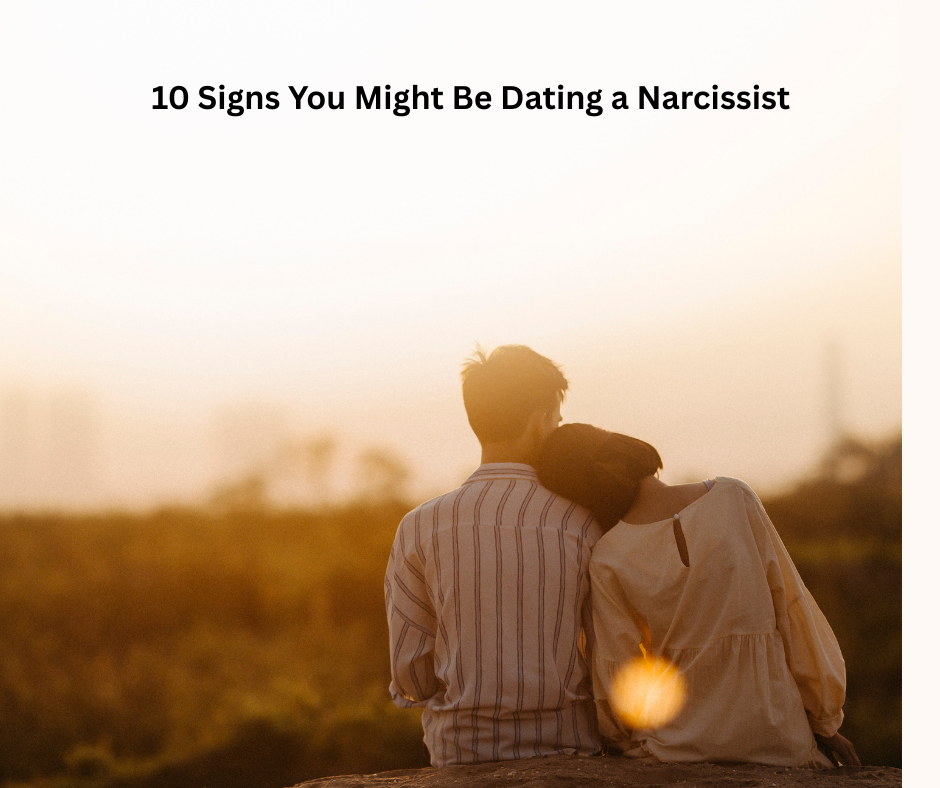Falling in love can feel magical. The early stages of a relationship are often filled with excitement, passion, and connection. But sometimes, what seems like a fairy tale beginning can slowly turn into confusion, anxiety, and self-doubt. If you’re feeling emotionally drained in your relationship and can’t quite figure out why, it may be time to consider whether you’re dealing with narcissistic behavior.

Narcissism exists on a spectrum, and not every person who exhibits narcissistic traits has narcissistic personality disorder. However, consistent patterns of manipulation, lack of empathy, and emotional control can be deeply harmful over time. This article will walk you through ten key signs that may indicate you are dating someone with narcissistic tendencies.
This isn’t about labeling or judging, but about helping you gain clarity, feel empowered, and decide what’s healthiest for you.
1. Love-Bombing at the Start
In the beginning, everything may have felt perfect. You were showered with compliments, affection, and grand gestures. They may have said things like, “You’re the best thing that ever happened to me,” very early on. While romantic enthusiasm is normal, narcissists often use love-bombing as a tactic to quickly hook their partners emotionally.
2. Lack of Empathy
A healthy relationship includes mutual understanding and compassion. If your partner regularly dismisses your feelings, minimizes your experiences, or seems emotionally unavailable when you’re hurting, it may be a sign of a deeper empathy deficit.
3. They Always Need to Be the Center of Attention
Whether it’s at a dinner party or during a quiet conversation, they somehow redirect attention back to themselves. They may become irritated if they’re not being praised, or seem uninterested when you’re talking about your own accomplishments or struggles.
4. Gaslighting
Gaslighting is a manipulative tactic where the person makes you question your perception of reality. You may hear phrases like, “You’re too sensitive,” or “That never happened,” even when you’re sure it did. Over time, you might begin to doubt your memory and intuition.
5. Idealization Followed by Devaluation
Narcissists often swing between putting you on a pedestal and then tearing you down. One moment, you’re their perfect partner; the next, nothing you do seems right. This push-and-pull dynamic keeps you emotionally off balance.
6. Controlling Behavior Disguised as Concern

They may try to influence how you dress, who you talk to, or how you spend your time — all under the guise of “just caring about you.” Over time, this can erode your sense of autonomy and self-worth.
7. They Rarely Take Responsibility
When conflicts arise, do they ever genuinely apologize? Or do they twist the narrative to blame you or others? A narcissistic partner often avoids accountability and may become defensive or dismissive during serious conversations.
8. They Struggle With Boundaries
Whether it’s pushing your physical boundaries, ignoring your need for space, or invading your privacy, narcissists tend to disregard the emotional and physical limits of others. This behavior can leave you feeling unsafe or disrespected.
9. Your Self-Esteem Has Declined
Take a moment to reflect: do you feel more anxious, less confident, or like you’re constantly trying to “earn” their love? Narcissistic relationships can chip away at your self-worth, often without you even realizing it.
10. You Feel Drained, Not Uplifted
In a healthy relationship, you should feel supported, respected, and emotionally nourished. If instead you feel emotionally exhausted, constantly walking on eggshells, or unsure of your partner’s love, it might be time to take a closer look at the dynamic.
What to Do If These Signs Resonate
If several of these signs feel familiar, know that you’re not alone. Many people find themselves in confusing or emotionally manipulative relationships without realizing it right away. The most important step is to start validating your own feelings and experiences.
Talk to someone you trust — a friend, therapist, or support group — and explore your options. Setting boundaries, seeking professional guidance, and prioritizing your mental health are powerful steps toward reclaiming your peace and sense of self.
You deserve a relationship built on mutual love, respect, and emotional safety. Awareness is the first step toward freedom and healing.
Remember: your feelings are valid, your voice matters, and you are worthy of healthy love.



